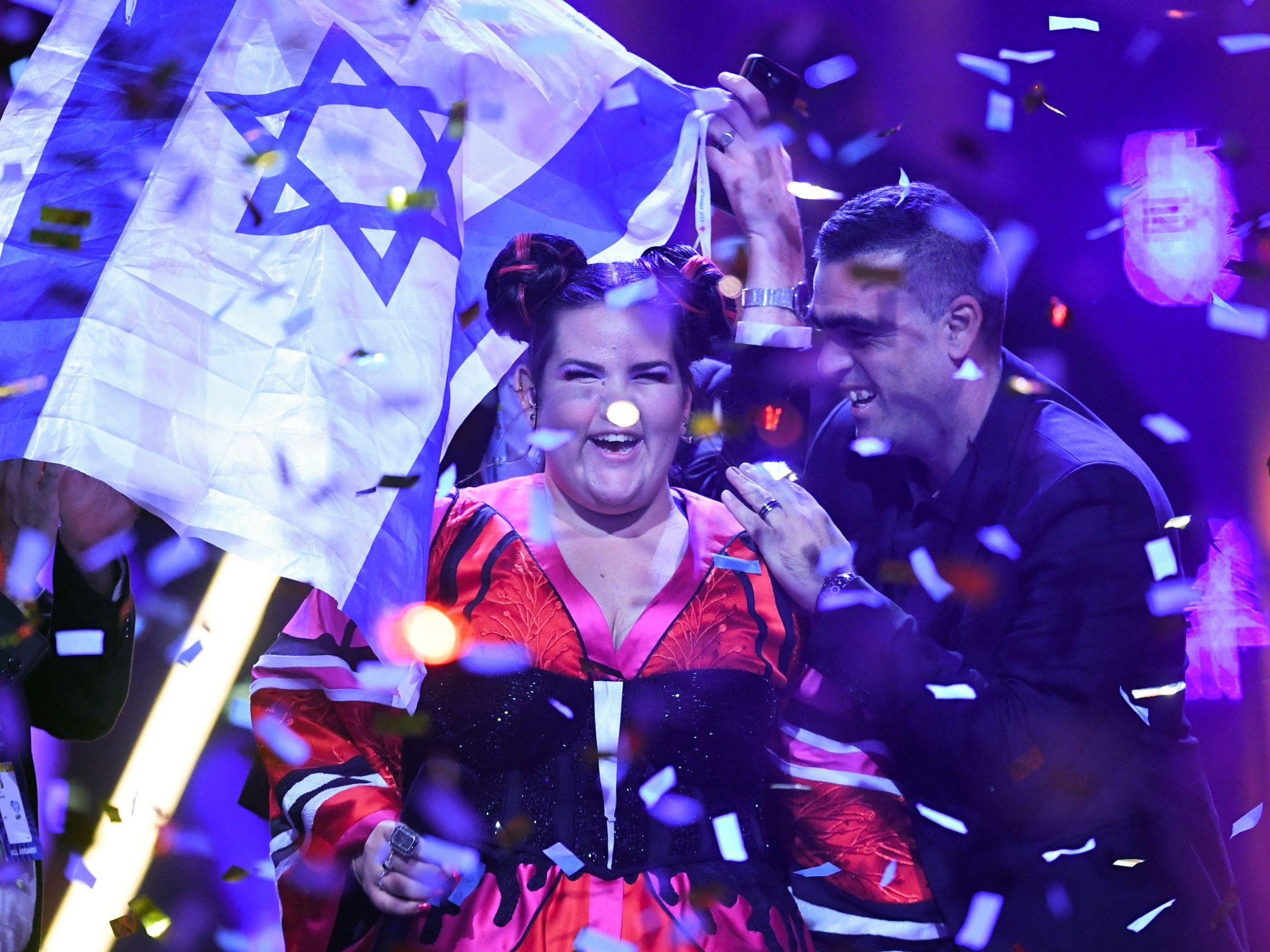Premieres, Triumphs, Boos: This is Israel's ESC History

Israel is a true pioneer of the Eurovision Song Contest. In 1973, the country was the first non-European state to participate in the music competition - and has remained relatively loyal to it to this day. At the same time, Israel has been heavily criticized by some ESC countries since last year, who are demanding that the Jewish state be excluded like Russia after the invasion of Ukraine due to its actions in the Gaza war.
In 2022, the European Broadcasting Union (EBU) banned Russia from the music event before the ESC in Turin. "The decision reflects concerns that including a Russian entry in this year's contest would discredit the competition in light of the unprecedented crisis in Ukraine," it said in a statement at the time, referring to the non-political nature of the Song Contest. Opponents of Israel's participation in the Vienna ESC 2026 are now using this approach as a precedent.
If no solution is found before the EBU General Assembly in December and Israel is indeed excluded from the Song Contest 2026, a long ESC history would come to at least a temporary end. After all, the country has been almost continuously represented in the contest since its debut in 1973 - and remarkably successful at that.
Israel Scored a Double
Even in its first appearance, it secured a good 4th place. And already in its sixth participation in 1978, Israel won with Yizhar Cohen & The Alpha-Beta and the song "A-ba-ni-bi". It continued, as in 1979, Israel hosted the 24th Song Contest in Jerusalem - and once again took 1st place with Gali Atari & Milk and Honey and the song "Hallelujah". However, they refrained from hosting the competition again in 1980 for financial reasons - and also from participating, after the Netherlands, who stepped in, scheduled the event on the Israeli holiday Yom HaZikaron.
In 1981, they were back on board and secured top scores in the following years, such as 2nd place in both 1982 and 1983. After another absence due to a holiday in 1984, they continued with varying results, sometimes better, sometimes worse. In 1994, they were not part of the competition again, as a qualification system was introduced at that time due to the numerous new entries after the fall of the Iron Curtain, and Israel had landed in second to last place in 1993 with a meager 4 points. Similar reasons prevented Israel from participating in the ESC in 1996 and 1997.
ESC Victories 1998 and 2018
And then came the year 1998 - and Dana International. For the first time, a country sent a transgender person - and the "Diva," which is also the title of her song, from Tel Aviv achieved a triumphant victory for her country in Birmingham - with a new record score for Israel. Consequently, Israel hosted again in 1999 and once more invited to the International Convention Center in Jerusalem.
In the early 2000s, however, the results were rather mixed, and after the introduction of the semi-final system in 2004, they often failed to reach the final, until the year 2018 and the competition in Lisbon came. Netta Barzilai secured the fourth victory for her country in the final with "Toy." The 2019 competition was then hosted by Israel for the first time in Tel Aviv and not in Jerusalem.
Threats and Booing
Then came the Hamas attack on Israel in October 2023 - and consequently the debate about the country's participation in the competition, which is always described as decidedly apolitical. The 2024 ESC in Malmö, the first edition since the outbreak of the Gaza war, went disastrously. Israel had sent Eden Golan with "Hurricane," after the first version of the lyrics "October Rain" was rejected due to political messages. Due to threats, the singer could only leave her hotel in the Swedish small town for rehearsals and performances, while in the hall, there were boos against the entry, and counter-demonstrations took place in the city itself. In the end, it was 5th place for Israel, with the audience even voting Golan in 2nd place.
There were also discussions about Israel's participation in this year's ESC in Basel, where this time Yuval Raphael, a survivor of the Hamas massacre, was sent. Even though Raphael also faced booing from parts of the audience, the artist won the televoting and ultimately reached 2nd place in the overall ranking.
Question Marks Before ESC in Vienna
In total, Israel can point to four victories, three second places, and two third places in its 47 participations in the Eurovision Song Contest (not counting the edition ultimately canceled due to COVID-19 in 2020). This makes the small country one of the most successful ESC nations ever. Whether this success streak can continue in 2026 in Vienna is still up in the air.
(APA/Red)
This article has been automatically translated, read the original article here.





